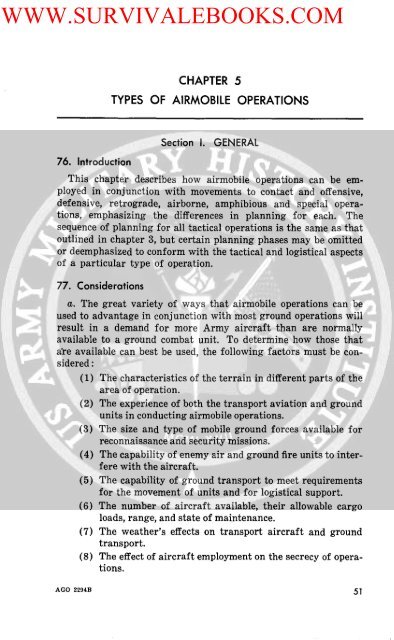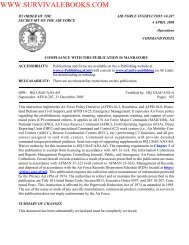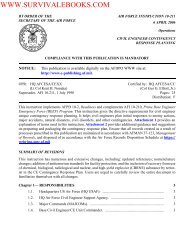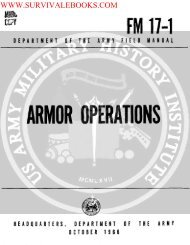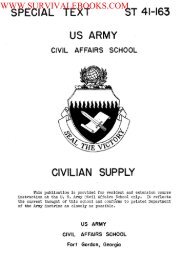FM 57-35 Airmobile Operations - Survival Books
FM 57-35 Airmobile Operations - Survival Books
FM 57-35 Airmobile Operations - Survival Books
- No tags were found...
You also want an ePaper? Increase the reach of your titles
YUMPU automatically turns print PDFs into web optimized ePapers that Google loves.
WWW.SURVIVALEBOOKS.COMCHAPTER 5TYPES OF AIRMOBILE OPERATIONS76. IntroductionSection I. GENERALThis chapter describes how airmobile operations can be employed in conjunction with movements to contact and offensive,defensive, retrograde, airborne, amphibious and special operations, emphasizing the differences in planning for each. Thesequence of planning for all tactical operations is the same as thatoutlined in chapter 3, but certain planning phases may be omittedor deemphasized to conform with the tactical and logistical aspectsof a particular type of operation.77. Considerationsa. The great variety of ways that airmobile operations can beused to advantage in conjunction with most ground operations willresult in a demand for more Army aircraft than are normallyavailable to a ground combat unit. To determine how those thata're available can best be used, the following factors must be considered :(1) The characteristics of the terrain in different parts of thearea of operation.(2) The experience of both the transport aviation and groundunits in conducting airmobile operations.(3) The size and type of mobile ground forces available forreconnaissance and security missions.(4) The capability of enemy air and ground fire units to interfere with the aircraft.(5) The capability of ground transport to meet requirementsfor the movement of units and for logistical support.(6) The number of aircraft available, their allowable cargoloads, range, and state of maintenance.(7) The weather's effects on transport aircraft and groundtransport.(8) The effect of aircraft employment on the secrecy of operations.AGO 2294B 51


